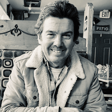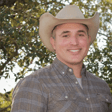
Bottom’s Up Community Building & Post-Partisanship with Seneca Scott
In this episode, I’m honored to chat with Seneca Scott who is a really awesome human doing a lot of good work in his community out in West Oakland and the surrounding area bringing people together around food, culture and nurturing healthy environments.
Seneca is part of a great team at Oakhella that was born in the Lower Bottoms of West Oakland to preserve the cultural fabric of their community while welcoming newcomers. They officially launched as a micro-music festival in 2016, and have since grown into a community organization made up of young professionals who recognize the need to create spaces that encompass the broader culture of Oakland, well known for its multi-generational appeal.
Seneca also helped build Oakhella’s sister organization, Bottoms Up Community Garden which is home to an experimental localized food system in West Oakland intended to re-shape the Lower Bottoms’ understanding of food security. They believe that through decolonizing the current industrial agricultural system, community health, nutritional awareness and biodiversity will improve… and we have some good conversations on this in the episode.
And if that’s not enough, Seneca also founded Neighbors Together Oakland which is an organization dedicated to bringing post-partisan unity and preparedness to Oakland neighborhoods.
But wait… there’s more… he recently ran for city council of district 3, and even tossed his hat in for Oakland mayor. He’s a Cornell University graduate from their school of industrial and labor relations, and he’s been an active member of Gaurdian Grange as we grow this organization.
So, needless to say Seneca is a very active member of his community and working extremely hard to do good things. I’m honored to call him a friend and excited about the work we’re doing in alignment to help communities become more resilient and food sovereign.
We actually recorded this podcast on location at Bottoms Up Community Garden, so you’ll hear some of the city sounds in the background mixed in with some chickens and other activity.
And just so you’re aware, this is a free flowing conversation that touches on wide range of topics and sensitive issues with some colorful language at time, so keep an open mind and if your ears are sensitive to swear words, just be aware that they do get thrown around in here. I try to be as clean as possible, but it’s part of the fabric of who I am and this is a real, raw conversation where we aren’t holding anything back.
I pride myself on being transparent, and I feel we did a really good job in that regard on this podcast…
Please stay connected to Guardian Grange on social media (Instagram, Facebook, Twitter, YouTube, etc.) and at our website www.guardiangrange.org to follow along with our progress as we help transform the world into a more beautiful, healthy, and friendly place one community at a time.
Guardian Grange is a registered non-profit 501(c)(3), EIN 85-3841605. Contributions are tax deductible.
Your donation supports our efforts to improve humanity and the environment by uplifting veterans to protect natural resources and strengthen communities.
Donations
Donate directly through our Donorbox campain here: https://donorbox.org/guardian-grange-donation
You can also donate through our website





